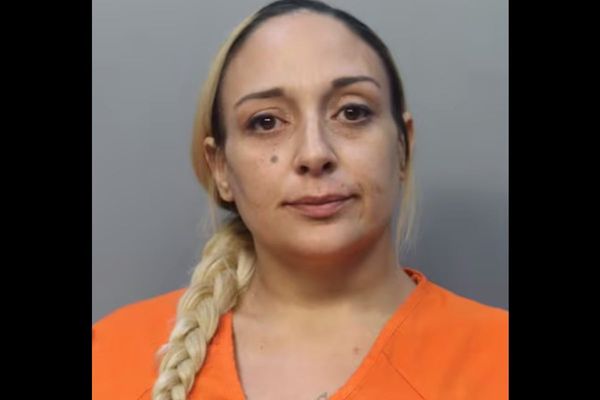
Nationwide, 40% of the most popular baby-formula brands were out of stock in the week that began April 24, up from 31% two weeks earlier, according to the latest figures from Datasembly, which tracks out-of-stock messages on retailers’ websites and apps. A normal rate is less than 10%.
The shortage, caused by a mix of supply-chain issues and a recall, has led to empty shelves at some stores, product restrictions and panic among parents and caregivers searching for formula to feed their babies.
Here’s what you need to know:
Why is there a shortage of baby formula?
There are two reasons for the shortage. Supply-chain issues caused by the Covid-19 pandemic have made baby formula harder to find for months. The shortage worsened after Abbott Laboratories, a major formula manufacturer, voluntarily recalled some products and closed a plant in Sturgis, Mich., where Similac and its other brands were made.
The Food and Drug Administration is investigating consumer complaints related to four infants who were hospitalized, two of whom died. A fifth complaint was also filed, but the FDA said there wasn’t enough information available to definitively link the illness to the recalled formula.
The agency said cronobacter sakazakii, a germ that can be deadly in infants, was detected in the Sturgis plant, but not in the products. The FDA said in a statement that findings during its inspection raised concerns that powdered formula made at the Sturgis plant carried a risk of contamination.
An Abbott spokeswoman said May 11 that after reviewing available data, “there is no evidence to link our formulas to these infant illnesses."
When could Abbott reopen its Sturgis plant?
Abbott said on May 11 that it could resume production within two weeks, pending approval from the FDA. It plans to first start making specialty formulas, such as those for babies with rare metabolic diseases.
How could that affect the shortage?
It would take six to eight weeks after restarting production at the Sturgis plant before Abbott’s formula starts showing up on store shelves, the company said. That means the shortage could last months.
What do I do if I can’t find formula for my child?
If you’re running low and can’t find formula, ask your pediatrician’s office. They may have samples they can give you. When out shopping, look beyond big national chains and try smaller stores that you may not normally stop at, said Dr. Steven Abrams, a pediatrics professor at the University of Texas at Austin.
Can I switch formulas?
Most babies that don’t have health issues can usually be switched to another brand of formula safely, said Dr. Bridget Young, an assistant professor at University of Rochester Medical Center. She suggested parents and guardians check to make sure the ingredients are the same on the label to reduce the chances of causing an upset stomach. If you aren’t sure which formula to switch to, she said, check with your baby’s doctors.
What if my baby needs specialty formula?
Parents or caregivers of babies who have health issues and require hypoallergenic or need specialty formulas should check with their doctors first before making any switches.
The FDA said in April that Abbott can give out formulas designed for babies with metabolic diseases and other health conditions on a case-by-case basis. The formulas, which often require a prescription, are made at the company’s Sturgis plant but aren’t part of the recall. The agency said the health risk of babies not having specialty formulas could outweigh the potential risk of bacterial infection. An Abbott spokeswoman said the products have been tested. Parents and caregivers have to call Abbott to be considered. The phone number is: 1-800-881-0876.
What are formula makers doing to get more formula on shelves?
Abbott said it is working to increase Similac production at other FDA-registered facilities and shipping formula from Europe by air.
Reckitt Benckiser Group PLC, which makes formula brand Enfamil, said it is running its factories seven days a week to get more formula to stores.
Are stores limiting how much formula can be bought?
Yes. Pharmacy chains Walgreens Boots Alliance Inc. and CVS Health Corp., for example, are limiting shoppers to three baby formula products per purchase. Kroger Co. said it is restricting customers to four baby formula products at its supermarkets. Target Corp. said it has set limits for purchases on its website, but not in stores. Walmart Inc. didn’t respond to a request for comment.
Can I make my own homemade formula?
No, making your own formula is dangerous and could cause severe illness or death in infants, said Dr. Abrams. Don’t feed infants cow’s milk or add more water to powdered formula to make it last longer, which can be harmful, he said.
What is the government doing about the shortage?
The FDA said on May 16 that it encouraged overseas manufacturers to apply to ship their formula to the U.S., easing rules that had effectively prevented these overseas shipments from previously happening.
These moves should allow more formula products to enter the U.S. baby market, which is dominated by Abbott, Reckitt and Nestlé SA’s Gerber business.
The announcement came after the FDA said on May 10 it was working with major manufacturers to produce more formula and streamline the process of importing certain formula from other countries.
The U.S. typically produces the vast majority— 98%—of the infant formula purchased by Americans, the White House has said.
The Agriculture Department is calling on states to allow recipients of the federally funded program known as WIC to use their benefits for a wider range of products in case the ones they want are out of stock. President Biden also asked the Federal Trade Commission and state attorneys general to investigate allegations of price gouging.
A House committee, meanwhile, has scheduled a hearing May 25 about the formula shortage.







